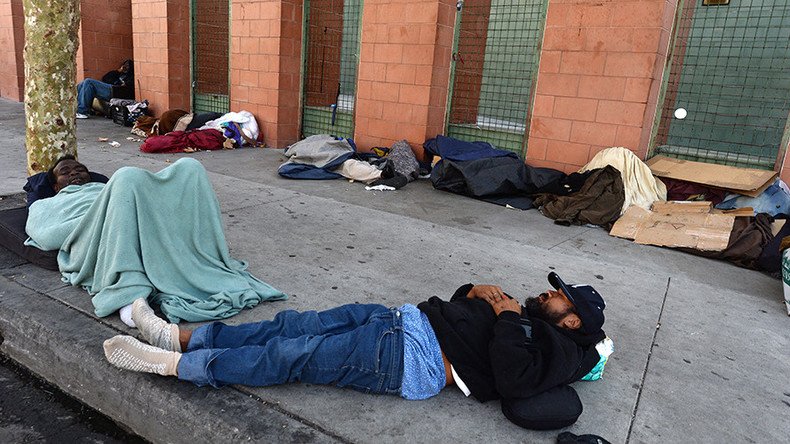Death toll rises to 14 in California Hepatitis A outbreak

Over 250 people have been hospitalized and 14 have died from a hepatitis A virus outbreak in San Diego, California. The majority of victims are drug users or homeless, according to local health officials.
There have been 352 reported cases to date and 264 people have been sent to the hospital, according to the San Diego County.
The outbreak began last November, but nine of the deaths have occurred since mid-July. The Centers for Disease Control and Prevention (CDC) said it was “likely the most deaths in an outbreak in the US in the past 20 years.”
Death toll reaches 11 in San Diego hepatitis A outbreak https://t.co/P8C6xAnHDOpic.twitter.com/bT3LXRjOHM
— The Union-Tribune (@sdut) August 17, 2017
The virus, which impairs liver function and causes jaundice, nausea and fatigue, is mainly spread through food or water contaminated by fecal matter.
“Unfortunately, because hepatitis A is transmitted by the fecal-oral route and homeless people do not typically have ready access to clean toilets and hand-washing facilities, there is likely to be more person-to-person transmission than outbreaks in other populations with better access to these types of facilities,” the California Department of Public Health said in a statement reported the Voice of San Diego.
The largest encampments of homeless people in San Diego are many blocks away from the nearest 24-hour public restroom.
Public Restrooms in East Village Remain Locked Despite Hepatitis Outbreak https://t.co/qCwvHB8U3Dpic.twitter.com/eMdmqEqxmv
— San Diego Informer (@sandiegoinforme) August 21, 2017
Two restrooms in Fault Line Park, where the homeless congregate to find shade, have remained locked for months, despite the city paying the park’s developer $1.6 million to keep them open and clean, according to the Guardian.
The restrooms have been a problem since they opened, local media report.
Homeless people have settled on the edge of the park and owners of the restaurant that houses the bathroom described near-constant safety hazards, including a stabbing.
“They basically got used all the time for drug use and prostitution and crime,” John Long, owner of the nearby Stella Public House restaurant, told the Voice of San Diego.
Death toll in county's major hepatitis outbreak jumps to eight victims.. Related Articles: https://t.co/egbh7Clavbpic.twitter.com/upYFULo2SV
— San Diego News (@san_diego_news1) July 31, 2017
The county is in the process of securing a permit from the city to set up hand-washing stations downtown, a process that should be completed this week.
Contaminated food is often the culprit, and hand-washing is one of the best defenses against infection. San Diego County authorities have been increasing efforts to vaccinate the homeless and drug users for free, as well as people who handle food.
“This is a pro-active recommendation because the ongoing outbreak means that the risk to the general public is higher than normal,” county public health officer Wilma Wooten said in a statement.
The virus has an almost month-long incubation period, so people can spread the disease before they are aware they are infected.
Homeless advocate Michael McConnell is incredulous the hand-washing stations weren’t set up months ago, as soon as officials realized there was an epidemic.
“I’m no expert on proper responses to public health crises or viral outbreaks, but what I do see a pattern of is a lack of urgency when it involves homeless people, and this really seems to be no different,” he told the Guardian. “How hard is it to make sure there’s additional hand-washing stations?”
San Diego’s homeless population has grown 41 percent since January 2014, with the subset of disabled people up by 86 percent, according to the San Diego Union Tribune.
Over the last six years, San Diego lost 10,000 low-cost units to redevelopment, easily offsetting all the government-funded apartments built since 1979. Developers say that subsidized housing costs too much, with recent projects carrying luxury price tags of nearly $400,000 per unit.













